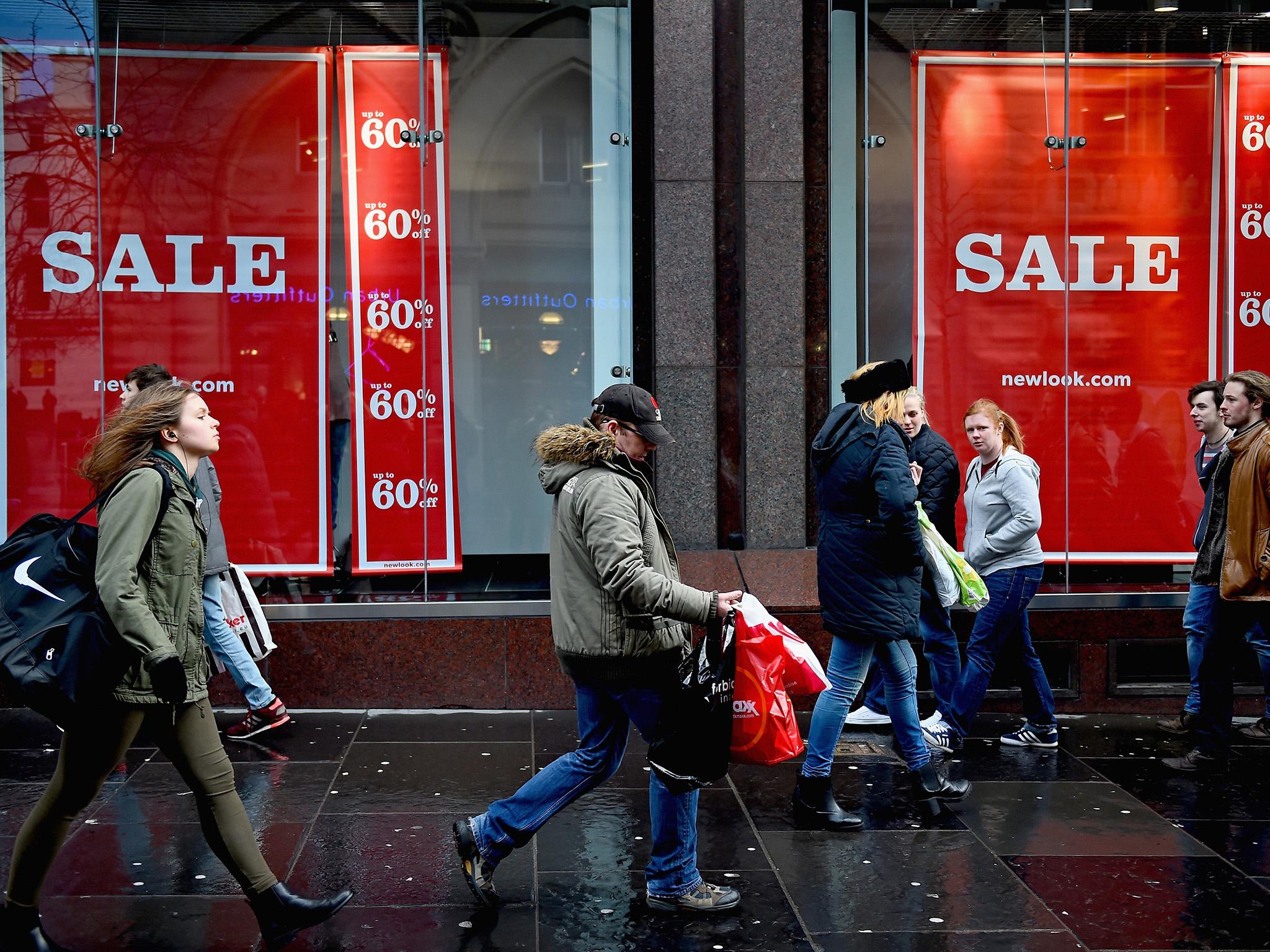Christmas shoppers have saved the British economy – but how long will it last?
The Institute for Fiscal Studies wrote recently about there being a lost decade in the growth of UK wages, the worst since the 1860s. But in the short-term British workers have not done too badly, for pay has risen by 2.3 per cent over the past 12 months, while prices are up only 0.9 per cent


It is a strange time, the run up to this Christmas. The usual encouragement to spend money is here as always, but there is also a sense of concern that in economic terms at least this may be the last of the good years.
For all worries about the impact of Brexit on the economy, there has so far been zero impact on growth. Sterling has fallen and there has been a sharp fall in top-end house purchases. But the former has not shown through yet in prices, while the latter has had more to do with the sharp rise in stamp duty on expensive homes than anything to do with Brexit. It looks, by the way, that the rise in stamp duty will cut government revenues by up to £1bn a year, a classic example of the way higher tax rates may actually result in the government receiving less money, not more.
But at a consumer level, nothing much has changed. Indeed it has been the spending boom that has kept the economy growing, with overall consumer spending up more than five per cent year-on-year. The growth of High Street sales has been slower, up 1.7 per cent according to accountants BDO, but that is the best for more than a year. Of course there has also been a huge shift to buying online, with UK showing a higher proportion of purchases online than any other major economy. At around 17 per cent of the total, excluding fuel, that is higher even than the US.
So we have kept shopping. Since consumption accounts for two-thirds of final demand, as long as we keep shopping the economy keeps growing. There are however two concerns. One is whether people will be able to keep spending given the debt burden many carry and the potential squeeze on real incomes as prices rise in response to the fall in the pound. The other is the national picture, for the country is running a current account deficit of 5 per cent of GDP, a level that will be hard to sustain.
As far as individuals are concerned the problem is this. We may be at a sweet spot at the moment, where incomes have carried on rising in money terms but the price increases have not yet fed through the system. There has been a great deal of publicity, rightly, about the longer-term squeeze of real pay throughout the developed world. The Institute for Fiscal Studies wrote recently about there being a lost decade in the growth of UK wages, the worst since the 1860s. But in the short-term British workers have not done too badly, for pay has risen by 2.3 per cent over the past 12 months, while prices are up only 0.9 per cent.
But that is a rise of only about 1.5 per cent in real wages. So how is consumption up five per cent? I think you have to be a little careful about both figures. People have other sources of income, pensions for example, and it may be that official earnings numbers do not catch all income. Maybe the informal economy has grown sharply, and if so that would explain a lot. As for the apparent surge in consumption, it does not feel as though there is a boom on that scale. If you take car sales, yes they are up overall year-on-year, but private car sales are actually down. I suspect the numbers with eventually be revised, for they usually are.
Still, however you explain away the divergence, you come back to the fact that a lot of people are maintaining their spending by borrowing more money. The British Bankers Association reported last month that consumer credit was rising at the fastest rate for a decade. Credit card debt is at a record high. Mortgage debt is at a record too, with loan-to-income ratios highest ever.
In a way people are acting rationally. They are borrowing while cheap money lasts. Mark Carney, governor of the Bank of England, has warned of the dangers of this level of borrowing but the Bank has encouraged it by signalling it will hold down interest rates. The fact that many people don’t believe this actually encourages them to borrow more now. They don’t believe the Bank partly because its guidance has been wrong in the past, but also because they look at what is happening in the US – there will be an increase this coming week – and reckon the UK will have to follow.
This personal borrowing spree mirrors the national picture. Last week there was some cheer from the trade figures about rising export numbers. But there is still a huge current account deficit: at five per cent of GDP, we are relying on attracting a comparable flow of inward investment – or we simply run down our foreign assets yet further.
Shoppers are not going to worry about that. Why should they? For the moment growth continues, employment remains solid, and mortgage rates remain low. The doomsters have been proved completely wrong. But even those of us at the more optimistic end of the scale would acknowledge that next year looks more fragile. Meanwhile we keep shopping.

Join our commenting forum
Join thought-provoking conversations, follow other Independent readers and see their replies